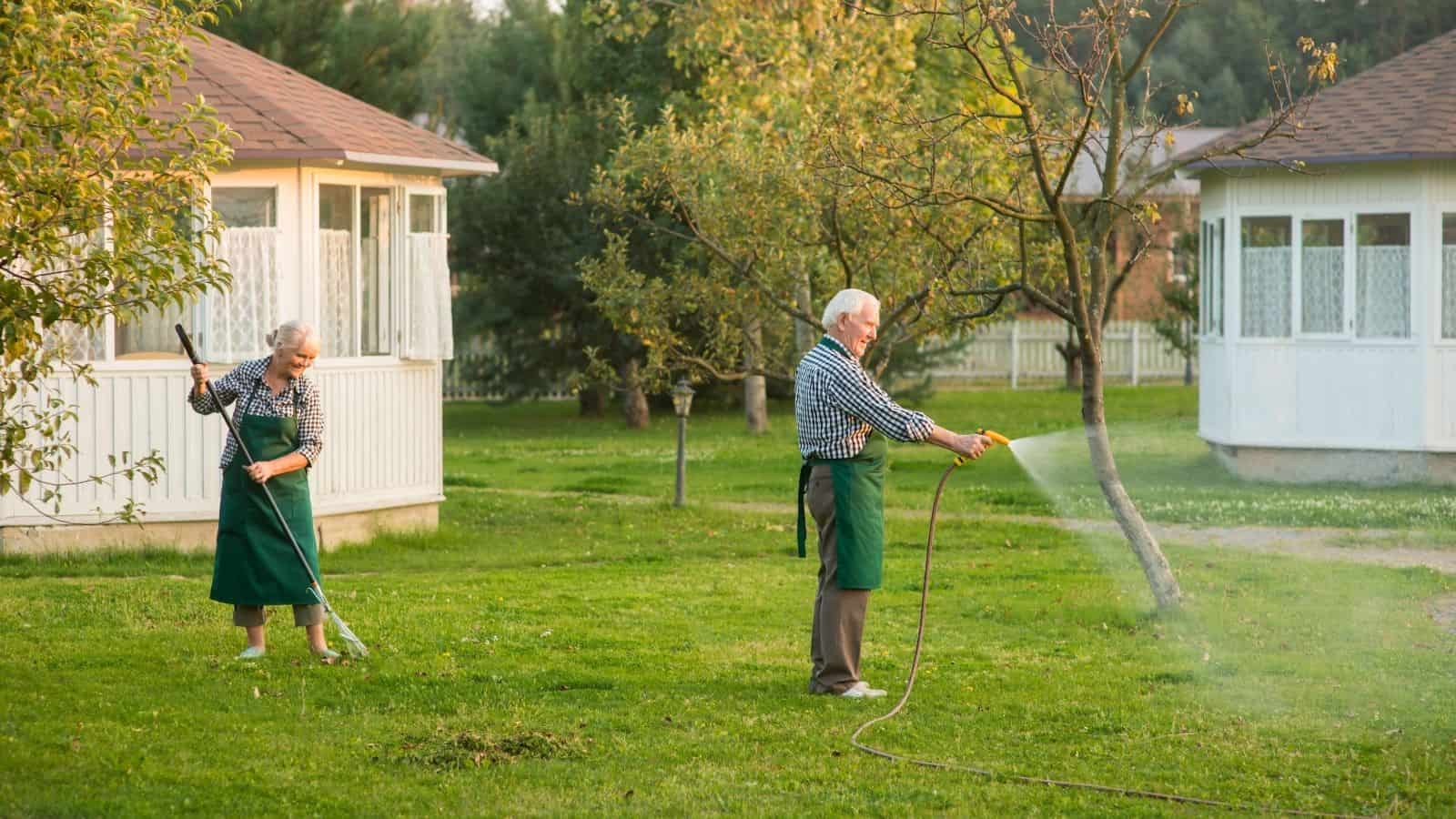As we age, certain things start to feel more unbearable than they did in our younger years. Our tolerance levels change, making everyday experiences and tasks more challenging and less enjoyable. Here are 18 common situations that tend to grow more frustrating as we get older.
Loud Environments

According to the Hearing Health Center of Houston, “While younger people can acclimate to the amplitude or volume of sound relatively quickly, older people do not acclimate to that sound.” This means bars, concerts, and noisy restaurants may become less appealing as people get older.
Intense Physical Activity

As you get older, your energy levels will generally decrease, which can make intense exercise more exhausting than it used to be. You are also more likely to suffer from injuries, and you’ll need longer for your body to recover from exercise.
Rich Foods

Your digestive system is also affected by age, and you may find that heavy or rich foods become harder to enjoy. While you may wish you could eat the decadent foods you used to love, eating lighter, healthier foods will help reduce your risk of heart disease or high cholesterol.
Clutter and Disorganization

Having clutter in your home will increase the chance of you tripping or falling as your mobility and flexibility start to decrease. Having a tidy space is also better for your mental health, and having your belongings in order will give you a sense of clarity.
Not Getting Enough Sleep

The quality of sleep we get each night often gets worse as we age, but the National Institute on Aging says, “Older adults need about the same amount of sleep as all adults—7 to 9 hours each night.” This lack of sleep can affect older people’s overall health and make day-to-day activities harder.
Keeping Up with Technology

Innovations in technology are evolving all the time, and at a fast pace. For many, keeping up with this can be overwhelming and frustrating, especially when they have to choose from the huge variations in devices available in the store. Despite finding it difficult, older people want to stay up to date so they can connect with their family and friends.
Extreme Temperatures

Our bodies are less able to regulate temperatures as we age, which can make extreme changes in weather more uncomfortable than in our younger years. This means older adults are generally more sensitive to cold and heat, and extreme temperatures can put them at risk of health issues such as hypothermia and heatstroke.
Waiting

A lot of older people find they become uncomfortable if they sit or stand for long periods of time without moving around. As a result, they may become more impatient with long waits, something that is sometimes made worse by the idea that time is precious.
Fast-Paced Media

There can be changes in the speed of our cognitive functions as we age, and this can make it harder to follow fast-paced media such as entertainment shows or breaking news. Many older people therefore prefer more in-depth media, such as documentaries or longer articles, that allow them to get a deeper understanding of the topic.
Changes to Schedules

Often, older people prefer a regular schedule that they know about in advance. Home Helpers says this is because “a daily routine lets them feel in control of their day. If the day makes sense for them, everything feels more stable.” Last minute changes can, therefore, cause stress.
Complicated Financial Products

Due to the technological advancements of recent decades, there are more complex financial products and services available to us than ever before. Older people may find this challenging to understand, especially when it comes to new financial terms and conditions that are different from what they’re used to.
Inflexible People

Potentially due to the decline in cognitive speed or physical mobility, older adults appreciate people who are open-minded and adaptable. Both in personal and professional relationships, they’re likely to avoid inflexible individuals and will also avoid conflict with others.
Late Nights Out

Older people need the same amount of sleep as younger adults, but they’re more likely to suffer from insomnia, especially when they don’t have a set bedtime routine. They may also experience longer recovery times when they’re tired. As a result, they’re likely to prefer events with earlier finishes.
Heavy Traffic and Driving

Many older adults will reduce the amount they drive, opting for shorter, quieter routes wherever possible. According to the Help Guide, this is because “as we age, factors such as decreased vision, impaired hearing, slower motor reflexes, and worsening health conditions can become a problem.”
Poor Customer Service

Maybe driven by the greater understanding of time that older people have, they’re generally more intolerant of slow or poor-quality service at restaurants, shops, or other venues. They like service to be efficient and for any problems to be resolved quickly by respectful and attentive members of staff.
Trends Among Young People

Trends move quickly within the younger generations, especially with the use of social media. This can leave older people feeling out of touch as they find new social norms and ways of doing things harder to understand, preferring to stick to the traditional habits they grew up with.
Excessive Screen Time

Eye strain may become more of an issue for older adults, who find it uncomfortable to spend long periods of time looking at screens. They can also find the continuous information and use of technology tiring, and they often want to balance the use of screens with more physical activity wherever possible.
Overly Complicated Gadgets

This is another issue that older people face as a result of technological innovation. They may find new gadgets around the house or in public to be frustrating as they struggle to learn how to interact with them. Often, they prefer to choose simplified versions that don’t have unnecessarily complicated features.
Up Next: 17 Commonly Believed Myths About The Wild West That Are Actually False

The Wild West was a peculiar place to live in, for sure. But are the stories of gunslinging cowboys and superhero sheriffs true? Here are 17 myths about the Wild West you should stop believing today.
17 COMMONLY BELIEVED MYTHS ABOUT THE WILD WEST THAT ARE ACTUALLY FALSE
18 Signs Someone Has a Personality Disorder

Personality disorders are underdiagnosed because they’re often misconceived as people ‘being difficult.’ Society also tends to focus more on the symptoms of anxiety and depression that accompany personality disorders, neglecting the other signs. To promote understanding, here are 18 signs someone isn’t being difficult but has a personality disorder.
18 SIGNS SOMEONE HAS A PERSONALITY DISORDER
20 Reasons Why Older Couples Are Ending Their Relationships

As our society modernizes and normalizes separation for couples who feel unhappy or stagnated, even older couples are choosing to end their marriages in greater numbers. While staying “till death do us part” and spending your golden years with a life-long partner may be more traditional, here are 20 reasons why older people might now be choosing divorce instead.
